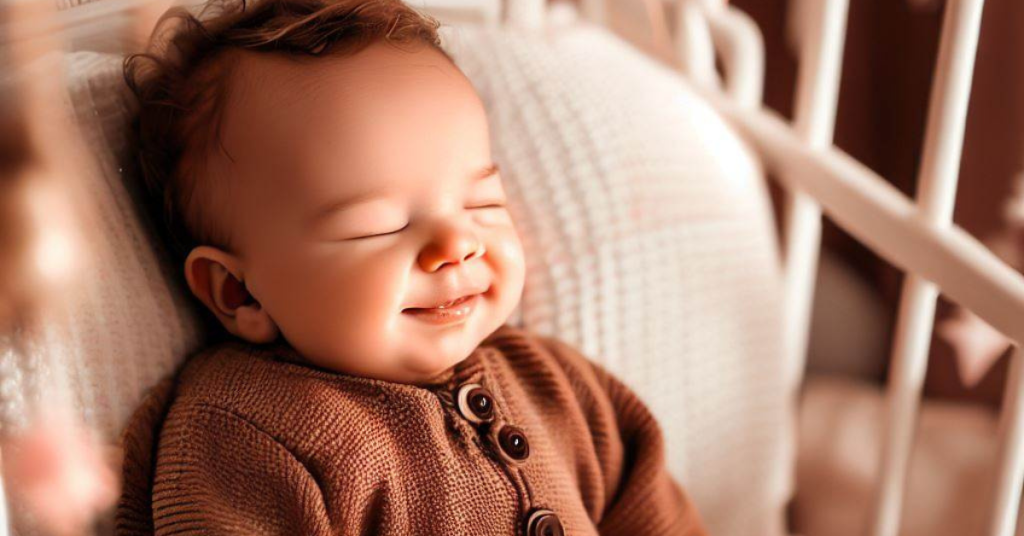Why do Babies Smile in Their Sleep : Absolutely Magical
Why do Babies Smile in Their Sleep , is a question all parents ask. Have you ever wondered why babies often wear the sweetest smiles on their faces while they are fast asleep? As a parent, witnessing these adorable sleep smiles can bring immense joy and wonder. In this article, we will delve into the fascinating world of baby smiles and explore the reasons behind those precious grins. So, let’s uncover the secrets behind why babies smile in their sleep!
Magical experience: Why do Babies Smile in Their Sleep
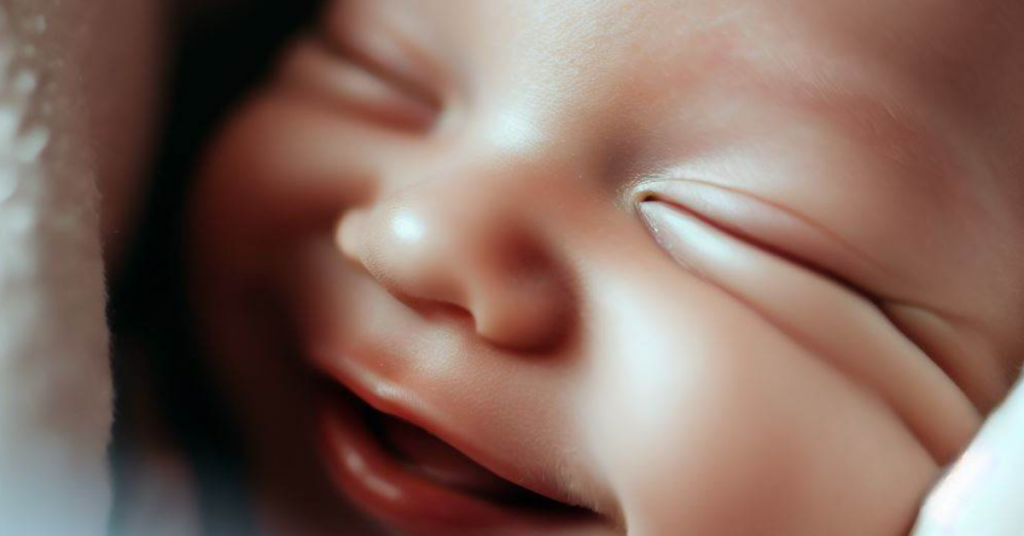
Welcoming a baby into the world is a magical experience filled with countless precious moments. One such moment is observing your little one’s smiling face during sleep. While it may seem mysterious, there are several factors that contribute to these sleep smiles. From reflexes to neurological development and emotional processing, let’s explore the science behind this adorable phenomenon.
7 Science Phenomenons
The Science Behind Why do Babies Smile in Their Sleep
1. Reflex Smiles in Newborns
In the early days of a baby’s life, they exhibit reflex smiles. These smiles are spontaneous and often unrelated to external stimuli. They are primarily caused by neurological reflexes and muscle movements. While they may appear heartwarming, reflex smiles are not yet a response to emotions or social cues.
2. Developmental Milestones
As babies grow and reach various developmental milestones, their smiles undergo significant changes. Around the age of 6 to 8 weeks, genuine smiles emerge. These smiles, also known as social smiles, are a response to external stimuli, such as seeing a familiar face or hearing a comforting voice. They reflect the baby’s growing social awareness and the ability to connect with others.
3. Dreaming and Emotional Processing
During sleep, babies enter different stages, including rapid eye movement (REM) sleep, which is associated with dreaming. It is believed that during REM sleep, babies engage in emotional processing, which can manifest as smiles. Dreams provide an avenue for babies to process their experiences, emotions, and interactions, leading to smiles as they navigate the dream world.
4. Neurological Factors
Smiling is a complex neurological process involving various regions of the brain. The activation of the limbic system, responsible for emotions and social behavior, plays a crucial role in initiating smiles. As babies’ brains develop and neural connections strengthen, their ability to express emotions, including smiling, becomes more pronounced.
5. Sensory Stimulation leads to babies to smile in sleep
Babies are highly sensitive to sensory stimuli. The sensation of touch, gentle sounds, and comforting smells can elicit smiles during sleep. The environment in which the baby sleeps, such as a cozy and secure space, can contribute to their contentment and result in those delightful sleep smiles.
6. Cognitive Development
Smiling is not only an emotional expression but also a sign of cognitive development. As babies grow and explore the world around them, their cognitive abilities expand. Smiles during sleep can be an indication of cognitive processes, such as memory consolidation and learning, happening in the baby’s brain.
7. Social Interaction and Communication
Babies are social beings from the moment they enter the world. Smiling is one of their earliest forms of communication, allowing them to engage with their caregivers and establish bonds.
Observing Facial Expressions
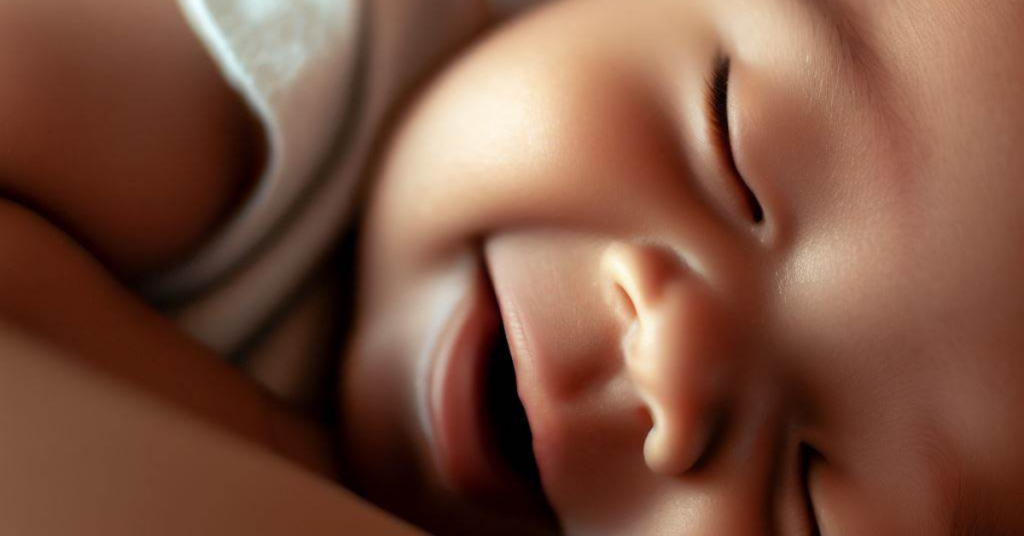
One of the joys of parenting is observing your baby’s facial expressions and trying to interpret their emotions. Smiles during sleep offer a unique opportunity to witness their genuine happiness without any external influences. It’s a heartwarming sight that reassures you of your baby’s contentment and overall well-being.
Recognizing Familiar Faces
Babies are naturally drawn to familiar faces, especially those of their parents or primary caregivers. As they sleep, their subconscious mind may recall the comforting presence of a loved one, triggering a smile. It’s their way of expressing a sense of security and connection, even in their slumber.
Emotional Expression
Just like adults, babies experience a range of emotions. During sleep, they might process and express these emotions through smiles. It could be a reflection of a pleasant dream or an emotional experience they encountered during the day. Smiling in their sleep allows babies to release positive emotions and brings them a sense of emotional well-being.
Contentment and Satisfaction
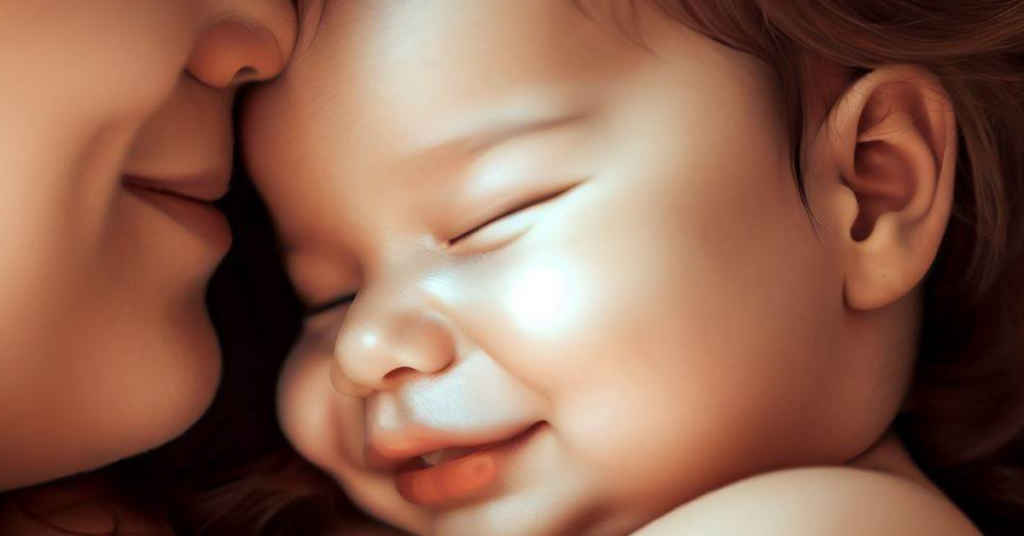 Babies have simple needs: nourishment, comfort, and love. When these needs are met, they feel content and satisfied. A well-fed and comfortable baby is more likely to smile in their sleep, indicating their overall contentment with their environment and caregiver. Ensuring that your baby’s basic needs are fulfilled can contribute to those blissful sleep smiles.
Babies have simple needs: nourishment, comfort, and love. When these needs are met, they feel content and satisfied. A well-fed and comfortable baby is more likely to smile in their sleep, indicating their overall contentment with their environment and caregiver. Ensuring that your baby’s basic needs are fulfilled can contribute to those blissful sleep smiles.Interpreting Smiles
While it’s tempting to assign meaning to every smile your baby displays, it’s important to remember that not all smiles have specific causes. Smiles during sleep can be a result of various factors, including reflexes, dreams, or even muscle movements. However, as babies grow older and develop stronger social bonds, their smiles become more intentional and responsive to their surroundings.
Tips for Encouraging Babies to Smile in Their Sleep
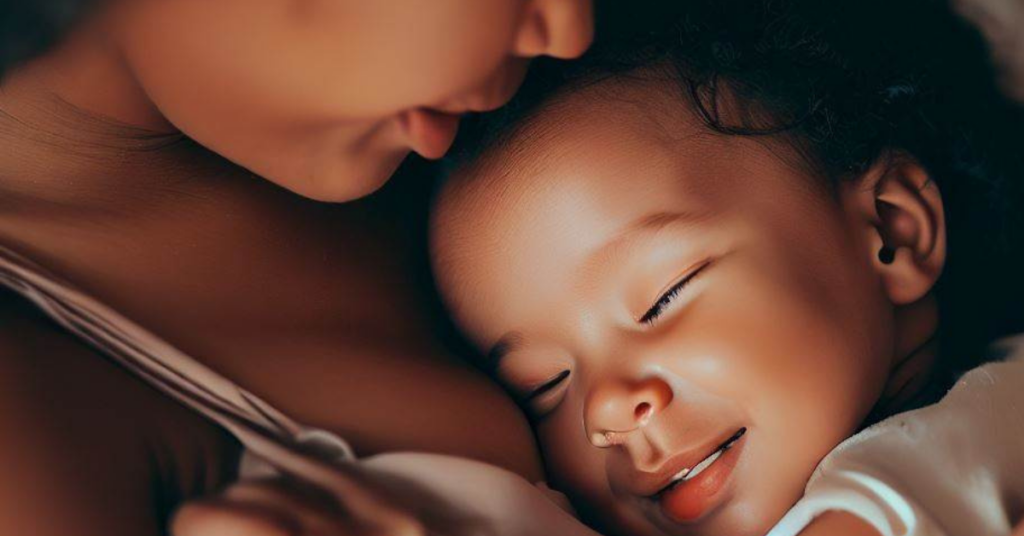
As a parent or caregiver, you play a vital role in creating a positive and nurturing environment for your baby.
Here are some tips to encourage those delightful smiles:
Bonding and Interaction:
Spend quality time engaging with your baby through gentle touch, soothing sounds, and facial expressions. This interaction fosters a sense of security and strengthens your connection.
Create a Calm Sleep Environment:
Ensure that your baby’s sleep environment is comfortable, quiet, and free from excessive stimulation. A peaceful setting promotes better sleep and increases the chances of smile-filled dreams.Also ensure your loved one has the Optimal Baby Sleep Position to ensuring a safe and peaceful rest
Provide Sensory Stimulation to make babies smile:
Introduce age-appropriate toys, mobiles, or soothing music that captivate your baby’s attention. These gentle sensory stimulations can bring about smiles during wakeful perids and contribute to their overall happiness.
Maintain a Consistent Routine:
Establishing a consistent daily routine helps babies feel secure and enables them to anticipate comforting activities. Predictability in their day-to-day lives can contribute to a contented and relaxed state, promoting sleep smiles.
Shower Love and Affection is investing in babies smile:
Shower your baby with love, cuddles, and affectionate gestures. Physical touch and nurturing interactions create a strong emotional bond and a sense of safety, which can result in more smiles during sleep.
So Why do Babies Smile in Their Sleep
The phenomenon of babies smiling in their sleep is a delightful aspect of their development. While it may seem mysterious at times, there are various reasons behind these heartwarming expressions. From reflexes and emotional processing to sensory stimulation and social interaction, the smiles provide a glimpse into your baby’s well-being and cognitive growth. Embrace and cherish these precious moments, knowing that your love and care contribute to your baby’s happiness even in their dreams.
In conclusion, the smiles that grace your baby’s face while they sleep hold a special place in the hearts of parents and caregivers. While the exact reasons behind these sleep smiles may not always be fully understood, they are a reflection of your baby’s well-being, emotional processing, and developmental milestones. Cherish these precious moments and continue to create a loving and nurturing environment that supports your baby’s overall happiness, both in sleep and wakefulness.
FAQs
1. Are sleep smiles the same as awake smiles?
Sleep smiles and awake smiles have different origins. Sleep smiles can be reflexive, related to dreams, or neurologically driven. Awake smiles, on the other hand, are more intentional and responsive to the environment and social interactions.
2. Is it normal for babies to smile in their sleep?
Yes, it is perfectly normal for babies to smile in their sleep. It is a common phenomenon observed in infants and is often a sign of their overall well-being and contentment.
3. Can I encourage my baby to smile more during sleep?
While you cannot directly control your baby’s smiles during sleep, you can create a nurturing environment that promotes a sense of comfort and security. Engage in positive interactions, maintain a consistent routine, and provide sensory stimulation to enhance your baby’s overall happiness.
4. Are all sleep smiles related to dreams?
Not all sleep smiles are necessarily related to dreams.
Sleep smiles can also be a result of neurological reflexes, muscle movements, or emotional processing. Dreams are just one possible cause of sleep smiles.
5. How long do sleep smiles typically last?
The duration of sleep smiles varies from baby to baby.
Some smiles may be brief and fleeting, while others can last for several seconds. It’s important to remember that the duration of sleep smiles does not indicate their significance or emotional intensity.


